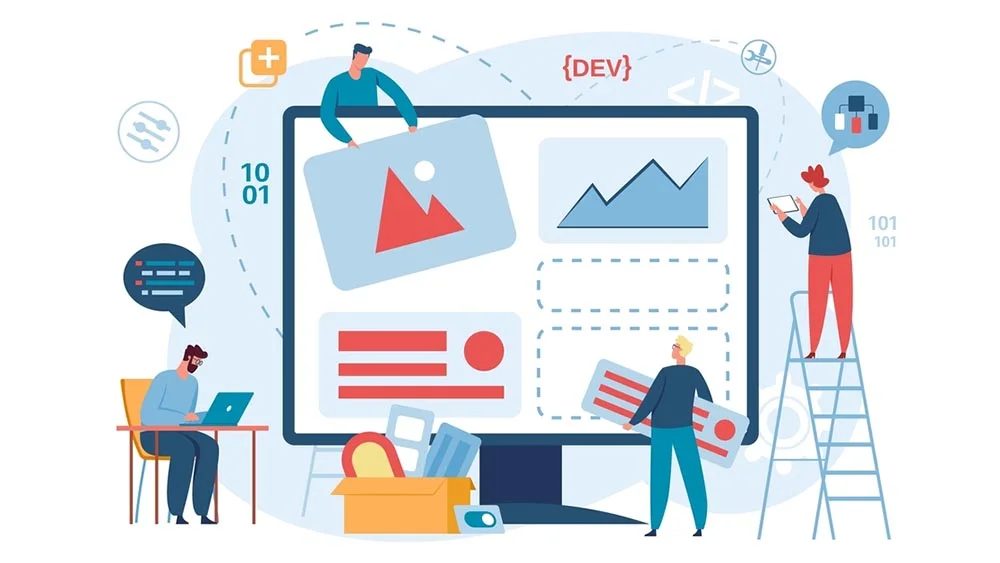Setting up a business can be a massive challenge, especially if you’re still finding your footing in the world of commerce. However, by overcoming these challenges, you can bring value to the community and set a strong financial foundation for yourself and your family. Whether you’re on the verge of starting your business or are already at the mid-launch stage, we got you. In this article, we’ll outline ten crucial things you must set up to ensure your small business is directed towards growth and prosperity.
Here are these things in more detail!
Small Business Setups: Legal Business Requirements
First things first, you should have all the legal requirements on hand and operational before publicly launching your business. These not only ensure that you’re operating within the country’s legal bounds, but they also protect you and your personal assets from malicious actors and lawsuits.
For Australian-based businesses, these are some of the legal requirements you should have before conducting your business:
-
- Business structure: Determines whether you’re a sole proprietorship, a corporation, an LLC, or a partnership.
- Business name: A business name registration under the Australian Securities & Investments Commission (ASIC).
- Australian Business Number (ABN): A specific numerical ID to identify your business for legal purposes.
- Trademarks: If you have developed a product prototype in-house, then you need a trademark to prevent other individuals and companies from stealing it.
- PAYG: Pay-as-you-go instalments are regular prepayments taken as a cut from staff wages to cover taxes.
- GST: Businesses need to also register to pay the goods and services tax in Australia, which is a 10% value-added tax on goods and services consumed in the country.
Depending on the industry and nature of your business, you may have to apply for additional certification, licenses to operate, and other crucial documents from the respective provider. Running a business without these things won’t bode well for your business’s reputation, and it can result in penalties, fines, and other consequences that can set your business’s credibility back for good. If you’re navigating a brand new industry, consult with a legal professional to ensure that you have all the required business requirements to operate.
Small Business Setups: Business Bank Account
Another important thing to secure before launching your business is a dedicated bank account. A business bank account is a separate bank account that has a wider set of features when compared to a personal one. In particular, this bank account can accept payments from debit cards and credit cards, allow multiple people to access the funds (in varying liberties), and even come with bank-exclusive deals and discounts.
With a dedicated bank account, your financial department can separate and track transactions solely made by the business. This makes accounting duties and tax filing duties less prone to error.
Business Plan
A business plan is essential for any small business. It serves as a guidebook that outlines your goals, strategies, and operational plans. Without it, you’re essentially running the show aimlessly—which can be a recipe for a slow-burning disaster. There are a few key components of a business plan. The first one is a mission and vision statement. This serves as the guiding light in which your business positions itself.
Other essential components include the financial and sales plans. Understanding how to set up accounting for your small business, such as creating a budget, managing cash flow, and tracking expenses, is crucial for making informed financial decisions and avoiding costly mistakes. For some businesses, working with a business plan consultant can provide additional clarity and structure, helping to refine their approach. This knowledge will ensure your business is financially healthy and positioned for growth.
Having these projections helps you identify the profitability of your business idea, as well as the steps you must take to achieve those goals.
With a business plan, you can also potentially attract angel investors who find your business promising to invest in. This capital injection can help you scale your operations in its early stages, and many growing businesses bring in a COO for hire to help manage this rapid expansion, allowing you to achieve growth much quicker.
Small Business Setups: Brand Identity
Your business needs a face, a brand identity, in other words. Your brand embodies the visual and emotional aspects of your business, consisting of not just the logo but also the color scheme, the font, the slogan, and your company’s values. It’s crucial to create a brand to set yourself apart from your competitors. You should construct it in a way that when people hear about your brand, they feel positive about it.
As such, before launching your business, be sure to create a brand and tone during its initial stages. Keep it consistent throughout, particularly when dealing with customers online and when pushing marketing materials, as this is necessary for creating a lasting impression on your customer base.
Website
A business website is a great way to have a controllable digital presence. This can serve as a touchpoint that your customers can access, inquire, or learn more about your business offerings. It can also potentially be revenue-generating, particularly if your website is displayed as an e-commerce store. In any case, having a website helps boost your business credibility significantly. This is especially true if you integrate quality-of-life features into it, like a chatbot system, contact forms, and website-exclusive discounts.
Unlike a physical storefront, a website is a b2c and b2b lead generator that works 24/7. This makes it a great tool to connect with customers and grow your business to new heights.
Marketing Touchpoints
Besides having a website, it’s important to have a wide marketing presence. This can help you expand your reach and tap into customers who may want to buy your product. One way of expanding your marketing operations is by creating multiple social media business pages. Develop a presence on Instagram, Facebook, and TikTok by posting relevant and appealing content that resonates with your target demographic.
Besides that, having a custom domain email and a business phone number like Telcowork’s 1300 Inbound Numbers can also help in answering customer inquiries and building business relationships. In any case, having multiple touchpoints can help you boost your visibility significantly. This, in turn, can help generate buzz, which in turn can reap more profits.
Business Insurances
Insurance may seem like an unnecessary business expense, but it can be the saving grace in case your business faces the very thing it aims to protect. There are many business insurance types out there, some offering greater coverage than others. Depending on your business’s industry and nature, you may benefit from a range of different insurance policies.
Some of these include:
- General Liability Insurance: This insurance covers claims of bodily injury, property damage, and personal injury that originate from your business operations or building.
- Workers’ Compensation Insurance: This essential insurance covers an employee’s medical expenses and lost wages if they’re ill or injured due to the job.
- Errors and Omissions (E&O) insurance: This protects you in lawsuits that blame you for making mistakes or being negligent in your role, causing financial damages to clients.
- Property Insurance: Covers business property, equipment, and inventory damages that result from fires and natural disasters.
- Product Liability Insurance: Protects your company in the event that your product’s defects have caused harm to a customer.
There are more insurance types out there, but the five listed above cover the most common and essential ones that your business should consider.
Operation and Payroll Systems
Another important set of things to set up before starting your business is a computerized system to do operations. A team-wide productivity suite is vital for businesses to conduct operations in an organized and streamlined manner. Tools like Google Workspace make it easy to collaborate and share files amongst the team, allowing your business to run with greater efficiency. For businesses dealing with international clients or financial considerations, it’s important to familiarize yourself with FBAR filing requirements. Understanding these requirements ensures compliance with financial regulations and protects your business from potential legal issues.
Besides that, having industry- and business-specific tools may also prove useful to operate. This can vary depending on the nature of your business. If you’re hiring staff, then you should also have a staff management and payroll system. Using hiring software for small businesses can come in handy here. While you can create simple ones in spreadsheet software, larger operations may benefit greatly from having dedicated accounting software to do all the wage calculations instead.
Small Business Setups: Physical Office
Unless you’re operating a home-based business, you’ll definitely need to spruce up your rental office or property to get it ready to operate and attract customers. If you’re operating an office space, renovate the space to enhance staff productivity and maximize its revenue-generating potential. Equip it with computers, office stationery & supplies, and other essentials to help your company have all it needs to succeed.
If you’re operating a storefront, display your products in a way that maximizes the chances of your customers buying from your store. You can add small items near the cashier, for instance, to increase the upsell potential of the item. By being mindful of your product placement and interior layout, you can reinforce your brand identity, increase staff productivity, and maximize revenue potential. So don’t dismiss it!
Small Business Setups: Financial Capital
No successful business runs without spending on costs—there are no exceptions. That said, a lot of entrepreneurs who are just starting out may not have the capital to operate and grow their enterprise on hand. In such cases, they may have to resort to acquiring money from external sources. This can come in the form of personal loans, business loans, lines of credit, credit cards, and other forms of refinancing. This can ease their cash flow by spreading out payment terms over a longer period.
Some businesses can also apply for government grants or get angel investors interested in their companies to fund their businesses. Getting approved for financial methods is fairly strict, but if successful, it can guarantee your business some funds without having to spend anything in return.






